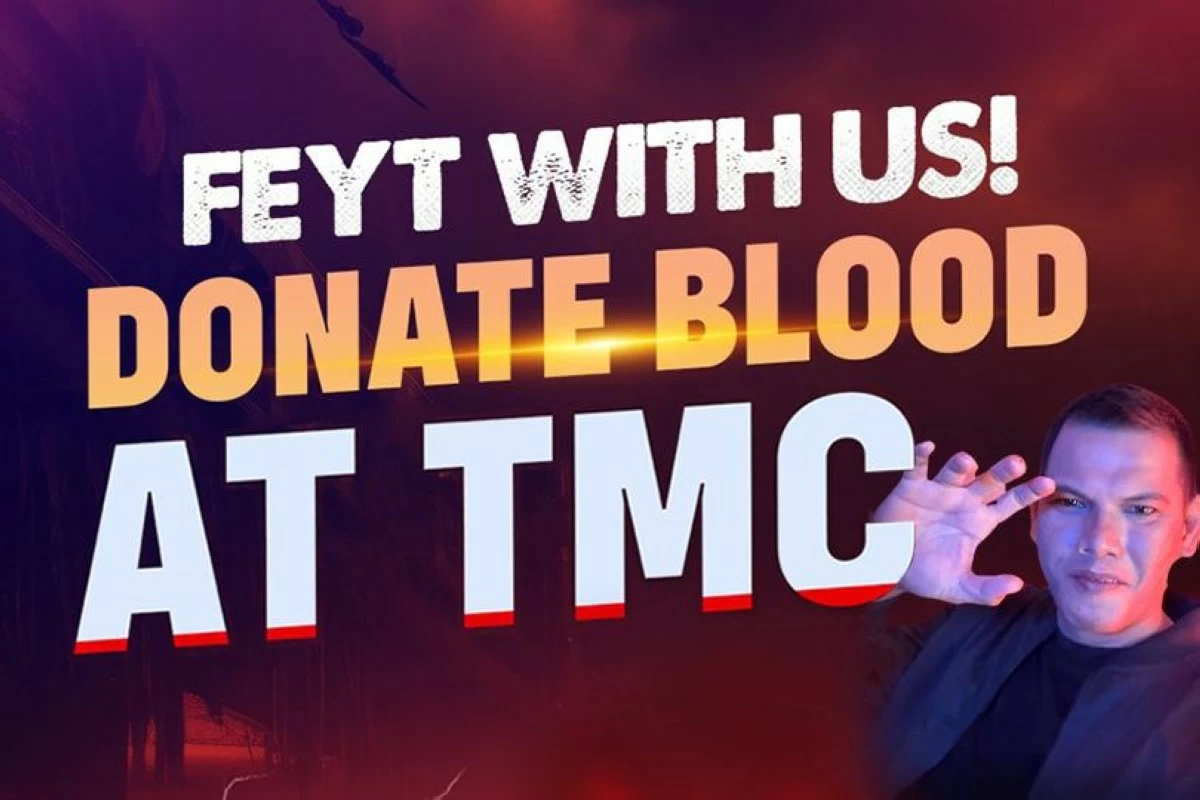How is Christopher Diwata Transforming Entertainment into a Force for Good?

More Than Just Entertainment: Christopher Diwata's Advocacy for Blood Donation
In today's world, social media platforms are not just avenues for entertainment; they are powerful tools for advocacy and change. One figure who has harnessed this potential is Christopher Diwata, a name that resonates with many Filipinos, thanks to his memorable portrayal of Jacob from the Twilight series on a popular noontime show. His dramatic delivery and memorable catchphrases have made him a viral sensation, but what sets him apart is his commitment to a noble cause—advocating for blood donation in the Philippines.
Teaming up with The Medical City, Christopher is transforming his popularity into a force for good. With his humorous yet impactful lines, such as “Vamfire will feyt to me! Blood! We need more blood here! I trusted you to donate blood, but you did not!” he cleverly blends entertainment with a serious message. This article will delve deeper into Christopher's journey, the significance of blood donation, and why his advocacy is essential for the health of countless individuals in the Philippines.
Understanding the Importance of Blood Donation
Blood donation is a critical aspect of healthcare that supports countless lives around the globe. According to the World Health Organization (WHO), more than 100 million units of blood are donated each year to aid patients recovering from surgery, cancer treatment, and medical emergencies. This life-saving resource is essential for:
- Trauma Victims: Blood transfusions are vital for individuals who have experienced severe injuries or accidents.
- Chronic Illnesses: Many patients with chronic conditions require regular blood transfusions to manage their health.
- Surgical Procedures: Blood donations ensure that healthcare facilities can perform surgeries safely.
- Cancer Treatments: Cancer patients often need blood products to cope with the side effects of their treatments.
Despite the pressing need for blood donations, there remains a significant gap between the number of eligible donors and those who actually donate. In the Philippines, many individuals meet the criteria to donate blood, yet only a small percentage come forward. This shortfall highlights the need for continuous education, awareness, and engagement within communities.
Christopher Diwata: From Entertainment to Advocacy
Christopher Diwata's rise to fame is a testament to the power of entertainment. His portrayal of a beloved character captured the hearts of many, making him a household name. However, it’s his dedication to a cause greater than himself that truly sets him apart. By using his platform to advocate for blood donation, Christopher is not just entertaining; he is inspiring action and change.
His partnership with The Medical City amplifies his message, leveraging his influence to reach a broader audience. As Joshua C. Dizon, the Communications Head of The Medical City, noted, making people laugh is often the first step toward inspiring them to act. By infusing humor into his call for blood donations, Christopher successfully breaks down barriers and encourages the public to participate in this life-saving initiative.
The Role of The Medical City in Blood Donation Advocacy
The Medical City is a leading healthcare institution in the Philippines that has consistently demonstrated its commitment to public health. Their collaboration with Christopher Diwata in promoting blood donation is a clear example of their dedication to community engagement and social responsibility.
Their initiative aims to:
- Raise Awareness: By highlighting the importance of blood donation, The Medical City seeks to educate the public about the pressing need for voluntary donors.
- Encourage Participation: The campaign invites individuals to take action and become regular blood donors, ultimately reducing the gap between blood demand and supply.
- Foster a Culture of Giving: By working with influential figures like Christopher, The Medical City aims to instill a sense of responsibility and compassion within communities.
Breaking Down Barriers to Blood Donation
Despite the critical need for blood, there are several barriers that prevent potential donors from stepping forward. Understanding these barriers is essential for developing effective strategies to encourage blood donation.
Common Misconceptions About Blood Donation
Many individuals harbor misconceptions that deter them from donating blood. Some of these include:
- Fear of Pain: Many people believe that donating blood is painful, which may discourage them from participating.
- Health Concerns: Some potential donors worry about their health and whether donating blood may harm them.
- Time Constraints: Individuals often feel they do not have enough time to donate blood.
- Unawareness: Many people simply do not know how to donate or where to go.
Addressing these misconceptions through educational campaigns is vital for increasing blood donation rates. By providing accurate information and creating a supportive environment, organizations can encourage more individuals to participate in blood donation initiatives.
Strategies for Increasing Blood Donations
To effectively increase blood donations, a multi-faceted approach is necessary. Here are some strategies that can be employed:
- Education and Awareness Campaigns: Utilizing social media and community engagement to spread information about the importance of blood donation can significantly increase awareness.
- Incentives for Donors: Providing small incentives, such as food or health check-ups, can motivate individuals to donate.
- Collaboration with Influencers: Engaging popular figures, like Christopher Diwata, can help reach a wider audience and inspire action.
- Blood Donation Drives: Organizing regular blood donation events in community centers, schools, and workplaces can make the process more accessible.
The Impact of Christopher Diwata’s Advocacy
Since launching his blood donation campaign, Christopher Diwata’s influence has been profound. His ability to connect with audiences through humor and relatable messaging has sparked conversations about blood donation, making it a topic that is both approachable and urgent.
Through his efforts, Christopher has:
- Increased Awareness: His entertaining approach has made the subject of blood donation more relatable and engaging.
- Inspired Action: Many individuals have stepped forward to donate blood after being influenced by his campaign.
- Fostered Community Engagement: By encouraging community participation, Christopher has helped create a culture of giving and compassion.
Looking Ahead: National Blood Donor Month
As National Blood Donor Month approaches in July, the timing is perfect for revitalizing efforts to encourage blood donations. This month-long campaign presents an opportunity for organizations, communities, and individuals to unite and promote the vital need for blood donors.
Here are some ways to get involved during National Blood Donor Month:
- Participate in Donation Drives: Look for local blood donation events and make a plan to donate.
- Spread the Word: Share information on social media to raise awareness and encourage friends and family to donate.
- Educate Others: Use your platform to inform others about the importance of blood donation and how it saves lives.
Conclusion
Christopher Diwata is more than just a viral sensation; he is a beacon of hope and inspiration for countless individuals in need of blood. His innovative approach to advocating for blood donation demonstrates the power of entertainment as a catalyst for social change. By blending humor and passion, he effectively raises awareness and encourages action, creating a ripple effect that can significantly impact public health in the Philippines.
As we approach National Blood Donor Month, let us all take a moment to reflect on the importance of giving back to our communities. Blood donation is not just a personal act; it is a collective responsibility that can save lives. Are you ready to join the movement and make a difference?
FAQs
Why is blood donation important?
Blood donation is crucial for treating patients in need, including those undergoing surgery, battling cancer, or recovering from trauma. It ensures that healthcare systems can provide necessary medical care.
How can I become a blood donor?
To become a blood donor, you can visit local blood donation centers or participate in blood drives organized by hospitals or community organizations. Ensure you meet the eligibility criteria before donating.
What are the health benefits of donating blood?
Donating blood can have several health benefits, including improving cardiovascular health, reducing the risk of certain diseases, and providing a health check-up during the donation process.
Are you ready to take action and help save lives with your donation? #BloodDonation #ChristopherDiwata #MakeADifference
Published: 2025-06-10 07:19:03 | Category: Uncategorized



